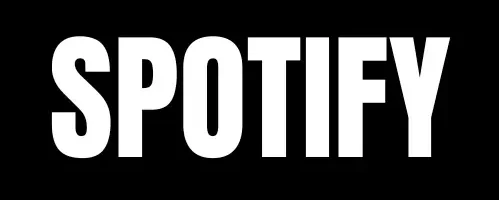Drake Withdraws Legal Petition Against Spotify and UMG: A Major Shift in the Music Industry
In a surprising move, Drake has withdrawn his legal petition against Spotify and Universal Music Group (UMG). The petition, filed in the summer of 2024, accused these two major companies of unfair business practices, including manipulating streaming algorithms and breaching contractual obligations. This sudden change of direction has shocked many in the music industry, especially as it was seen as a potential turning point in the artist-streaming platform relationship.
The Legal Petition: What Was at Stake?
The legal petition Drake filed in June 2024 raised some serious concerns. He claimed that Spotify manipulated its algorithms to favor certain artists over others. This, he argued, hurt visibility for artists like himself. Drake’s lawyers also accused Spotify of suppressing artist royalties, making it harder for musicians to earn a fair income from their work.
Drake’s legal team didn’t stop there. They also filed complaints against Universal Music Group, his record label. They claimed UMG didn’t protect his intellectual property properly and didn’t do enough to prevent what Drake described as “unethical practices” within the streaming world. His team argued that both companies were unfairly benefiting from his popularity while artists were left with minimal rewards.
“Drake had every reason to stand up for himself,” said Rachel Miller, a professor of music law at Harvard University. “But his decision to withdraw suggests he may have found a better way to work through these issues.”
Why Did Drake Withdraw the Petition?
Drake’s sudden decision to pull his legal petition has left many wondering what happened behind the scenes. There are a few key reasons for this change.
One of the most important factors is the rapid changes in the music streaming industry. Since Drake filed the petition, platforms like Spotify have made several adjustments to how they handle royalties. For example, they’ve started offering more tools to independent artists, allowing them to better track their earnings and connect with their audience. Spotify also rolled out improved transparency around their payout system, a change that may have influenced Drake’s decision to walk away from the lawsuit.
Spotify’s move to improve artist compensation could have been a key factor. According to a Music Industry Research Group (MIRG) report, Spotify paid out over $5 billion in royalties to artists in 2023. However, the platform’s overall revenue that year was around $14.5 billion. This means the payout per stream remains extremely low—roughly $0.003 per play. Even top-tier artists like Drake only earn a small fraction of what they generate.
Another reason Drake might have withdrawn the petition is his ongoing relationship with Universal Music Group. UMG is not just his label, but also one of the largest record companies in the world. They are responsible for getting his music out to millions of fans worldwide. While the contract issues were a point of contention, it seems unlikely Drake would want to further jeopardize his partnership with the company, especially given how intertwined they are in his career.
The Bigger Picture: What Does This Mean for the Industry?
Drake’s decision to withdraw his lawsuit is more than just a personal matter. It highlights some larger issues facing the music industry, particularly around the fairness of streaming platforms like Spotify.
Many artists—especially smaller, independent musicians—have long criticized the way streaming services distribute royalties. While major stars like Drake may benefit from large streaming numbers, the average payout per stream is far too low for many others.
The MIRG report shows that in 2023, Spotify made about $14.5 billion in revenue but paid out only a small percentage of that to artists. Even when artists like Drake generate millions of streams, they often end up with just a fraction of the revenue.
In response to these concerns, Spotify has been diversifying its business. In 2024, the platform invested heavily in podcasts and exclusive content deals. By expanding its offerings, Spotify hopes to attract new subscribers while also addressing the needs of artists. Whether these changes are enough to resolve the growing tension between artists and streaming platforms remains to be seen.
What’s Next for Drake?
For now, Drake seems to be shifting his focus away from the legal battle and back to his music. The artist is currently working on a new album, which is set to drop in mid-2025. He’s also teased a number of collaborations with both emerging artists and established names.
While he’s walking away from the lawsuit, Drake hinted in a recent interview that he may continue to advocate for artists’ rights—just in a different way. Instead of taking legal action, he might look for more collaborative solutions that benefit everyone in the industry.
Conclusion: A New Era for the Music Industry?
Drake’s withdrawal from his legal battle with Spotify and Universal Music Group could signal a shift in how artists handle their relationships with streaming platforms. While it may seem like a personal decision for Drake, it also highlights a need for change in the music industry.
Streaming services like Spotify play a huge role in the music world today, but they also need to address the concerns of artists—especially when it comes to fair compensation. If platforms and labels continue to work together, there’s hope that the industry can find a better balance.
Ultimately, Drake’s move might be about finding a more cooperative approach to dealing with the challenges artists face in the streaming age. As the music industry continues to evolve, it’s clear that more changes are needed to ensure that artists are properly valued for their work.
Sources:
- Music Industry Research Group (MIRG) 2023 Report
- Harvard Law School Music Industry Research
- Spotify Annual Financial Disclosure, 2024







